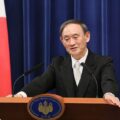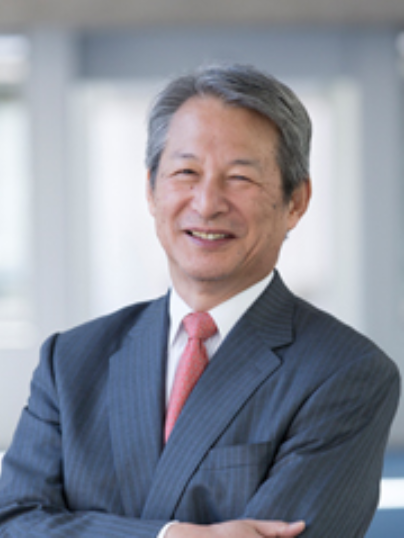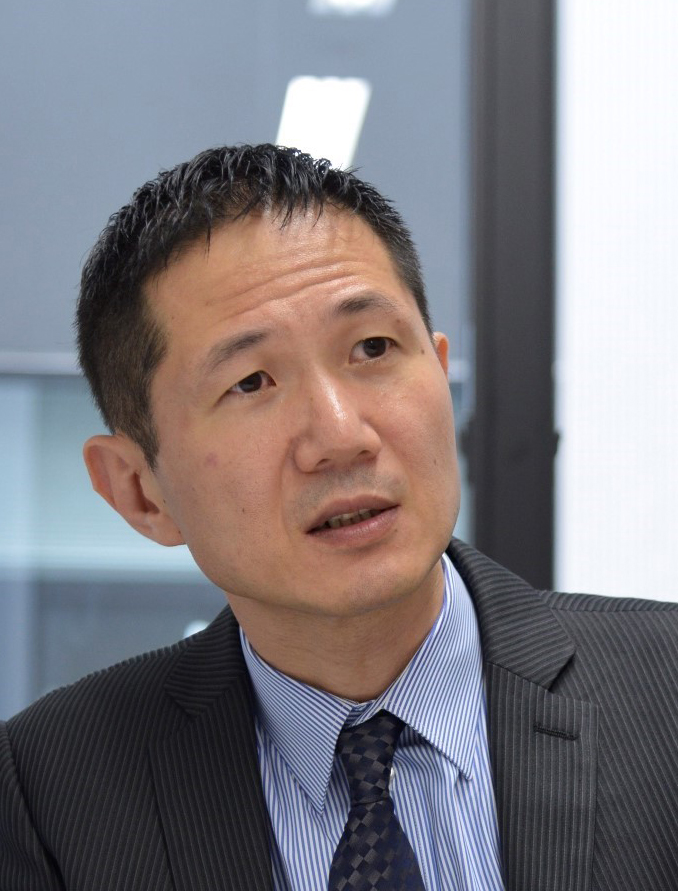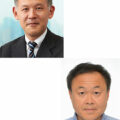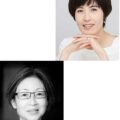Challenges Exposed by COVID-19: Forward-Leaning Experts and Recoiling Politics
Makihara Izuru, Professor, Research Center for Advanced Science and
Technology (RCAST), University of Tokyo
People’s Anger without an Outlet
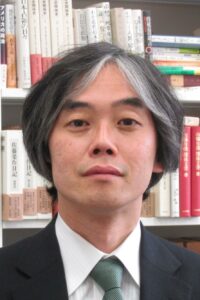
Prof. Makihara Izuru
Amid rapidly rising numbers of people infected with coronavirus disease (COVID-19), the declaration of a state of emergency was issued in seven prefectures on April 7 and then applied nationwide on April 16. Yet the infectious spread did not stop and the declaration was extended until May 31 on May 4.
The following day, on May 5, I was met with a bizarre sight at a drug store on the outskirts of Tokyo that I happened to visit. The shelves were almost completely empty of face masks, antiseptics, toilet paper, tissue paper, and even soap. In that crowded space, people’s eyes appeared somehow filled with desperation and gone was the carefree atmosphere that usually exists.
The declaration of a state of emergency was subsequently lifted in thirty-nine prefectures on May 14 and then finally in the remaining five prefectures on May 25, with which the nationwide air of tension caused by the epidemic began to fade. Having said that, I suspect the people still harbored a deep-seated anger for which they had no outlet.
Amid the COVID-19 self-quarantine in Japan, a major campaign protesting the bill for revising the Public Prosecutors Office Law swept social media. There were reports of Kurokawa Hiromu, the Superintending Prosecutor of the Tokyo High Public Prosecutors Office, playing mahjong for money, which combined with a steep drop in Cabinet support and forced the government to repeal the exceptional bill.
In Europe and North America, where quarantine restrictions were easing around this time, intense demonstrations against racial discrimination flared up in response to the incident in which an unarmed black man was chocked to death by a police officer in Minneapolis, Minnesota.
What Everyone around the World Saw at the Same Time
COVID-19 is a wholly new phenomenon in the post-Cold War world. It is a crisis for the whole world at once, information about it can be found globally through the internet at the same time, everybody is part of it as anybody risks infection, and irritation and all kinds of emotions are shared.
COVID-19 started out in China, went to the East Asian countries, and then spread to Europe and North America, causing a surge in infection across the world at the same time. People are making comparisons with the responses of other countries while observing their own country’s government’s response with anger pent-up deep in their hearts.
The news showed the heads of state of different countries competing to perform as they eloquently spoke to their citizens and told them to follow the advice of experts in infectious diseases at this critical time. By contrast, especially in February and March, Prime Minister Abe Shinzo read from a paper by himself at events that were press conferences in name only, being no more than the typical Japanese leader who is unable to speak in his own words.
Speaking of experts in infectious diseases, the Counter-Cluster Measures Team (of the Ministry of Health, Labour and Welfare, MHLW) had adopted an approach of identifying and isolating infected persons while disseminating information on their own. They explain the state of the contagion in an easily comprehensible way, also giving one piece of advice after the other. They actively communicated at press conferences, on TV, and in submissions to magazines and online journalism, so people thought the words of these experts are the best guide.
On the other hand, the government’s response was always too late. Distracted by measures to deal with the recession that came after the raised consumption tax in October 2019, they stuck with wanting to hold the Tokyo Olympics and kept responding in ways that seemed to assign the infectious disease only secondary importance.
Seeing the surge in infections in Europe and North America, it was only in mid-March that they got on with revising the Act on Special Measures for Pandemic Influenza and New Infectious Diseases Preparedness and Response and undertook legislation under pressure from the opposition parties. After this, as it became more difficult to get face masks, a sudden suggestion from the prime minister led to the so-called “Abenomask,” which was the distribution of two face masks to every household, but it took until mid-June before there were any signs of the masks actually being deliverable. Things like insensitive information campaigns on social media showing Abe relaxing at home in a video supporting musician Hoshino Gen and the repeated seesawing over the size of special cash payments have likely amplified people’s irritation and anger.
As a result, it became natural to assume that it was the members of the Experts Meeting who decided on the substance of policy. Doctor Omi Shigeru[i], who has played a central role among the experts since April, attended one of the prime minister’s press conferences to explain the state of the contagion and countermeasures. Inevitably, people took this to mean that the expert was leading the situation on par with the prime minister.
However, this also had the effect of turning people’s dissatisfaction from the government to the experts. What made an especially lasting impression on me was how well-known writers started expressing their anger toward experts identified by name one after the other in social media posts in various mediums around this time.
After the lifting of the state of emergency on May 28 when it looked like things were starting to calm down, Kyodo News reported that the Experts Meeting was not putting together any minutes, which was followed by harsh criticism against the experts and the government. As a result, although the government refused to publish the minutes, they revised their earlier policy by publicizing summaries of proceedings without real names, and they later created summaries of proceedings that include the names of the speakers.
Who Pulls the Trigger on the Declaration of a State of Emergency?
Emblematic of this series of developments is Abe’s statement in the Diet on April 7. It was an “advance report” to the Diet based on a supplementary resolution for the revised Act on Special Measures following Diet deliberations to deal with COVID-19.
The prime minister abruptly stated the following. “Yesterday, with regard to the current situation with COVID-19, Dr. Omi Shigeru, the chair of the Advisory Committee on the Basic Action Policy, gave me the advice that the government should prepare a declaration of a state of emergency considering that the number of infected persons is surging especially in cities like Tokyo and Osaka, which has created a critical situation for the medical field.”
For a moment, the listeners thought they were told that it was Omi who had pulled trigger on the declaration. But then the prime minister continued.
“Judging that this situation of nationwide and rapid spread would have major effects on the lives of citizens and the national economy, we decided to issue the declaration based on the provisions of Article 32, Paragraph 1 of the Revised Act on Special Measures for Pandemic Influenza and New Infectious Diseases Preparedness and Response.”
It does seem that the prime minister himself is saying “judging.” However, then the committee led by Omi appeared once again. “Today, we convened the Advisory Committee where we reached an understanding on the proposed edict on a declaration, and so we intend to convene the meeting of the Novel Coronavirus Response Headquarters and issue the declaration tonight.”
The Advisory Committee is an agency that reports its views on the declaration following an inquiry from the government. Its chairperson, Omi suddenly asked the prime minister to make an announcement on April 6, so that the Advisory Committee acknowledged the issuance of the declaration one more time ahead of the final decision. If so, the “judgment” of the prime minister was in form only and the Basic Action Policy, which was the original proposal, was accepted as is following prompting from the chair and the Advisory Committee.
The reason for this situation was the ambiguity of the experts’ role and the inability to make a fast decision. The experts sensed the impending crisis of the surge in infections and actively called on the population to strengthen COVID-19 measures, and it seems to be the case that the government became entirely reliant on this.
Looking at the prime minister’s actions on April 6, Omi has access to the prime minister’s residence along with Nishimura Yasutoshi, Minister in Charge of COVID-19. As such, the prime minister must have made his “judgments” while listening to the advice of experts and ministers in charge. Yet the perception of the prime minister side was simply to report the experts’ advice in detail to the Diet. He did not have the spare energy to make any independent judgment.
The “Forward-Leaning” Experts
Seemingly so influential, Omi and the other experts actually belong to various government committees themselves. Core members like Dr. Omi and Dr. Oshitani Hitoshi[ii] stood at the frontline during the response to the 2009 novel influenza and are members of the Advisory Council on Countermeasures against Novel Influenza and Other Diseases (hereinafter, “the Advisory Council”) that was created in 2012. This council is still formally in existence, but it has not convened even once during the on-going COVID-19 pandemic.
With the current COVID-19 measures, Kato Katsunobu, Health Minister, set up an advisory board in early February. This was expanded to the Expert Meeting on the Novel Coronavirus Disease Control (hereinafter, “the Experts Meeting”), which gives advice to the Novel Coronavirus Response Headquarters, and it has subsequently communicated information in various forms.
At the same time, the Counter-Cluster Measures Team of the Ministry of Health, Labour and Welfare (MHLW) was set up in late February as infections were increasing in the cities, signaling a full-scale start to the counter-cluster measures. Dr. Nishiura Hiroshi, who calls himself the “80% uncle” and called for self-isolation, is one of the team’s core members alongside Dr. Oshitani.
Then, in connection with the revision of the Act on Special Measures for Pandemic Influenza and New Infectious Diseases Preparedness and Response, the Advisory Committee on the Basic Action Policy was set up to receive inquiries about the declaration of a state of emergency in late March and members of the Experts Meeting also became members of the Advisory Committee. Since its inception, the Advisory Committee consisted almost entirely of experts on infectious diseases and public health.
In this way, there exists a variety of committees such as the Advisory Council, the Experts Meeting, the Counter-Cluster Measures Team and the Advisory Committee, whose core members are more or less the same people.
Moreover, the Advisory Council has not convened once while the powers of the Experts Meeting are ill-defined and without legal basis. Legally speaking, the Advisory Committee is supposed to be a committee that receives inquiries about the declaration and issues responses, but as suggested by Abe’s statement, it is also actively putting forward its own opinions. The experts were taking the initiative to work to prevent infectious spread as needed, not based on powers or procedures.
Greatly alarmed by the risk that the experts’ actions may cause misunderstandings, I submitted a piece titled “The Abe Administration’s Weak Response to COVID-19 Reveals a Forward-Leaning ‘Team of Experts’” to the political online magazine “Webronza” on May 2. Even if I can sympathize with the experts’ sense of urgency, I feared that major criticism levied against them could lead to a situation that is beyond the capacity of even experts in infectious diseases, such as further waves of infection or complex disasters involving earthquakes, localized torrential downpours, and so forth.
What I want to express is how “forward-leaning” experts try to take charge of the situation as much as possible based on their sense of urgency, and the term is also used in the “Summary” of the Experts Meeting on June 24.
It goes without saying that lurking in the background of these “forward-leaning” experts was the administration that was not only disordered but also seemingly left everything to the experts. A positive spin would be to call this delegation of responsibilities, while a more shrewd view would interpret it as if the government was pushing everything on them. Meanwhile, the COVID-19 pandemic will last a long time as there is no vaccine or medicine and infection risks remain everywhere. As a result, it is hard to deny that the influence of the experts on COVID-19 is overwhelmingly surpassing that of experts in all other fields, ranging from economy to education.
The Experts in Other Fields Who Chime In
This is most likely because the experts on COVID-19 are taking the lead. With the declaration still in effect, experts on matters other than infectious diseases now started loudly talking about COVID-19. Dr. Yamanaka Shinya, Nobel Prize laureate for his research on iPS cells, actively communicated his views although he made clear that he is a medical researcher and not an expert in infectious diseases. In particular, he started a discussion by giving the name “factor X” to the fact that the death ratio is lower in Japan and East Asia than in Europe and North America.
Professor Nakano Takashi likewise did a data analysis and argued for the validity of the “K value,” which represents the rate by which the total number of infected persons increased in the preceding week. Not only this, but he also told the governor of Osaka that the measures of the government and Osaka Prefecture had been ineffective at an experts meeting in Osaka. His specialization is physics.
The biggest issue is the economy. In order to contain the spread of the infectious disease, shops and other businesses were requested to close down due to their potential as sources of infection. In particular, the support offered to business owners who had closed down was extremely small, and the permanent closing of businesses, people losing their jobs, and the economy’s negative growth has caused the biggest economic crisis of the postwar period. Seeing this, economists and many others have asserted the need to “keep the economy going,” but the economists in question cannot be said to have had sufficient knowledge about infectious diseases. Even economy-related committee members in the government were coming up with half-baked ideas like domestic passports and PCR testing of the entire population.
This debate beyond areas of specialization has also invited free discussions in civil society, so I do want to emphasize that this is a healthy situation first and foremost.
Nonetheless, just like the government left everything to the experts in infectious diseases, they are now awaiting the appearance of “experts” who are convenient to the government, precisely because the situation is so difficult to anticipate. This is not only on the national level. Prefectures and municipalities across Japan have to come up with their independent views on reopening businesses and measures against the infectious disease. Each of them has their own variety of experts. If the views of an outsider sound feasible enough, they will serve as an aphrodisiac to persuade the people, be it on the national or local level.
If it is so that experts who do not necessarily possess enough specialized knowledge about infectious diseases are able to directly influence policy, then they naturally have to be held accountable. Yet while there are many unreliable “experts” making noise at least on social and other media, it is unclear whether that is something they are anticipating.
Recoiling Politics amid Division
The scuffle over COVID-19 measures between “forward-leaning” experts in infectious diseases and the experts in diverse fields who seem to be crowding around them is not limited to Japan. Growing dissatisfaction with experts has naturally been visible in the United Kingdom, which changed its policy as a result of thunderous criticism against their initial call for herd immunity, and in Sweden, which had a higher death rate than neighboring countries as a result of sticking to the policy of herd immunity, and even in Germany, which was relatively successful in holding back the infection. All countries have a tendency to criticize countries with other policies in an effort to defend the policies of the own country, and all these forms of criticism appear to stoke the fires of dissatisfaction in each country.
In the case of Japan, the faults of the Second Abe Cabinet and later have become plain for all to see as it was originally appointing experts only half-heartedly. The prime minister’s lackluster performance at the press conferences is simply a reflection of the lack of effort he has put in developing eloquence as whatever he says in Diet deliberations does not venture beyond heckling.
Moreover, by making Nishimura Yasutoshi, Minister in charge Economic Revitalization, the minister in charge of COVID-19 and effectively excluding Chief Cabinet Secretary Suga Yoshihide, who had been controlling the ministries by using his power to appoint bureaucrats, the government’s overall control of the ministries has diminished. This is because the minister appointed by the Cabinet Office has very few staff compared to the other ministers and based on past examples, it does not seem that their right to speak is particularly strong.
Additionally, the role of Health Minister Kato, who set up an advisory board in the beginning, and the medical officers who are the medical experts inside the government, has been growing dimmer. More so than Omi, Kato was originally in the right position to explain things to the people, but he has not stood out however you look at it. Likewise, the secretariat of the Experts Meeting is in fact very much controlled by medical officers of the MHLW and they play an important role in the strengthening of end health centers and the speedy approval of specific medicines and vaccines. The more Nishimura and Omi take center stage, the more the role of the MHLW in the background becomes difficult to discern.
In this way, the administration that has been supporting Abe as a strong team organization under Abe ikkyo (the political dominance of Prime Minister Abe) is increasingly showing signs of division. None is able to shoulder responsibility and they are recoiling from a tough situation. The reason for the weak-sounding words of the prime minister and the irritating frequency by which set phrases like “certainly,” “clench one’s teeth,” and “hold fast” are being said is that the staff supporting the prime minister are withering away and that policy ideas are becoming scarce.
A result of this has been the growing desire of bureaucrats to “infer intentions” (sontaku) with regard to the Moritomo and Kake Gakuen scandal. With the resignation of Superintending Prosecutor Kurokawa, the only penalty was admonition, but the Ministry of Justice (MOJ) argued for a sterner warning and it was leaked that the Prime Minister’s Office did not go further than an admonition. It is quite evident that the source of the leak was the MOJ. At a press conference, Abe emphasized that they would speed up the approval of Avigan as a secret weapon to keep down the infectious spread, but the MHLW remained backward-looking. No pharmaceutical company has appeared to apply for its approval. At this point, the ministries do not necessarily cooperate when thrown an illogical policy from the Prime Minister’s Office.
Measures from the Field Are the Starting Point
Given the likelihood of a second wave, it is highly unlikely that the style of doing things up until now will be enough. As the spread of infection is slowing down, the biggest challenge of the administration is to figure out how to work together with experts to formulate policy in the future.
Firstly, we have the experts in infectious diseases. Politics were recoiling while the experts in infectious diseases were “forward-leaning.” This needs to be rectified so that the scope of political responsibility is clear and the experts can focus on the tasks of analysis and evaluation. On June 24, Nishimura announced that the Experts Meeting would be “abolished,” so it will be interesting to see what kind of arrangement will be made from now on.
Secondly, as the pandemic is slowing down, coordination between the infectious disease measures and other fields will be needed more than ever. Coordination with the economy is of primary importance and the Advisory Committee has already included four economists upon requests by the experts in infectious diseases.
Having said that, the number of economy-related members is extremely small compared to that of experts in infectious diseases. Moreover, there is little actual point of contact between the views of the economic experts and those of the experts in infectious diseases, so it is difficult to build consensus. Unifying different views into one is the role of politics, so decisions ought to be made by the health minister and the minister in charge of economic revitalization as they discuss the advice they receive from their respective experts. However, the current administration has not had a style of politics with the relevant ministers taking this action, with the ministers and Kato in particular coming up against Abe. The past seven years have been weathered by concentrating everything around the prime minister.
Not only this, but there are a number of problems typically in education, such as how to teach, school life, and how to conduct entrance exams. If we were to add the regional circumstances, then the responses should be different in the cities, where infections spread more easily, and the countryside, where life can be lived normally as long as infections are not brought in from the cities. When it comes to daily life in general, the question is how the “New Lifestyle,” meaning the Experts Meeting’s rules for avoiding the 3Cs (closed spaces, crowded places, and close-contact settings), should be applied in different settings.
The sharing of responsibility is something that the Cabinet should rethink first of all. The decision-making of the prime minister and his aides is no longer functioning. The role of the chief cabinet secretary as someone who coordinates the government overall needs to be reaffirmed. It is likely necessary to rebuild the administration as a team organization.
Next, the roles of the health minister, the education minister, and the other ministers ought to be revised. The basic principle of the cabinet is that the ministers with overall responsibility for a ministry should act independently. With the exception of Finance Minister Aso Taro and a few other ministers around Abe, they have not been functioning in the current administration, leaving everything to the Prime Minister’s Office. This was possible only because the administration has focused on one policy issue at a time, such as the Legislation for Peace and Security, dealing with U.S. President Donald Trump and regional revitalization, and made policy reforms in this way. However, when it comes to COIVD-19 measures, it is necessary to revise the jurisdictions of all ministers over many years and deal with the related problems both carefully and decisively. Policy-making that specializes in “matters for the Prime Minister’s Office” is incapable of handling this. This is likely to become even more important if the administration changes before the COVID-19 measures are over.
Third, if issues drag on and diversify, it becomes essential for experts to again transcend their respective fields to repeatedly and steadily engage in discussions with each other. I suspect that the interests of experts have focused too much on the country’s central decision-making out of fear of surging infection numbers and the risk of healthcare collapse. If views on steady measures in their local settings are exchanged instead, I think it will be possible to have a healthy debate. If various means are used to build a “multi-layered defense” against too big a drop in lifestyle quality, then it should also be possible to prevent a sudden explosion in infections or lockdown.
Finally, politics should agree to take responsibility, look back on previous policies in a constructive way, and explore post-corona possibilities. Now is the time for politics, experts in all kinds of fields, as well as citizens to take action for building such a system.
Translated from “Shingata Korona de Ukabiagatta kadai: Maenomeri no Senmonka to Tajirogu Seiji (Challenges Exposed by COVID-19: Forward-Leaning Experts and Recoiling Politics),” Chuokoron, August 2020, pp. 96-104. (Courtesy of Chuo Koron Shinsha) [September 2020]
[i] https://japan-covid19.japanpolicyforum.jp/diplomacy/pt202005200910368.html
[ii] https://japan-covid19.japanpolicyforum.jp/diplomacy/pt202006051610392.html
Keywords
- Makihara Izuru
- Research Center for Advanced Science and Technology
- RCAST
- University of Tokyo
- COVID-19
- forward-leaning experts
- Counter-Cluster Measures Team
- Dr. Omi Shigeru
- Dr. Oshitani Hitoshi
- Dr. Nishiura Hiroshi
- Kato Katsunobu
- Nishimura Yasutoshi
- Expert Meeting on the Novel Coronavirus Disease Control
- Novel Coronavirus Response Headquarters
- Abe ikkyo
- 3Cs
